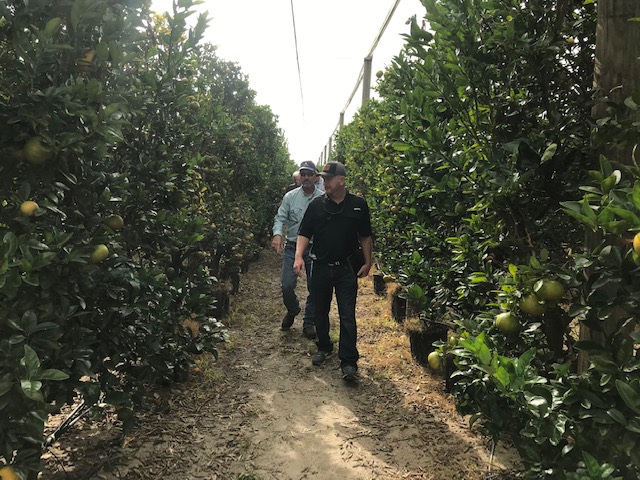
The success of citrus under protective screen (CUPS) in protecting Florida citrus from citrus greening, also known as huanglongbing or HLB, was not surprising to Arnold Schumann. The professor of soil fertility and water quality at the University of Florida Institute of Food and Agricultural Sciences (UF/IFAS) Citrus Research and Education Center is thankful research had yielded a temporary solution for Florida’s growers who have been under siege by the disease.
“I’m not amazed, just relieved, because there was always a chance we could be wrong. I fully expected it to be close to 100%, which it is. There’s about a 2% incidence of HLB in our own CUPS over 10 years,” Schumann said.
He discussed the value of CUPS during the recent UF/IFAS Cold-Hardy Citrus Meeting in Quincy. The screened citrus production system protects trees from the Asian citrus psyllid, the insect vector of citrus greening disease.
While growers in South Georgia and North Florida have yet to experience HLB to the level that the rest of Florida has, UF/IFAS CUPS research provides hope that production can continue if disease pressure increases.
“Yes, we’ve had (HLB) occurrences, which is why we’ve not had zero (percent). When we get the occurrences, we remove those trees. That seems to have worked,” Schumann said. “It was the remedy all along for HLB, to remove the trees, but there were millions in Florida to remove. That was never fully implemented. You can actually do it in CUPS.”
According to UF/IFAS, HLB affects citrus production across the globe. Symptoms include asymmetrical yellowing of the leaves and leaf veins. Later symptoms include twig dieback and decreased yields. Fruit is often small, lopsided and not marketable. Fruit drop can also occur as a result of the disease.

By Clint Thompson









